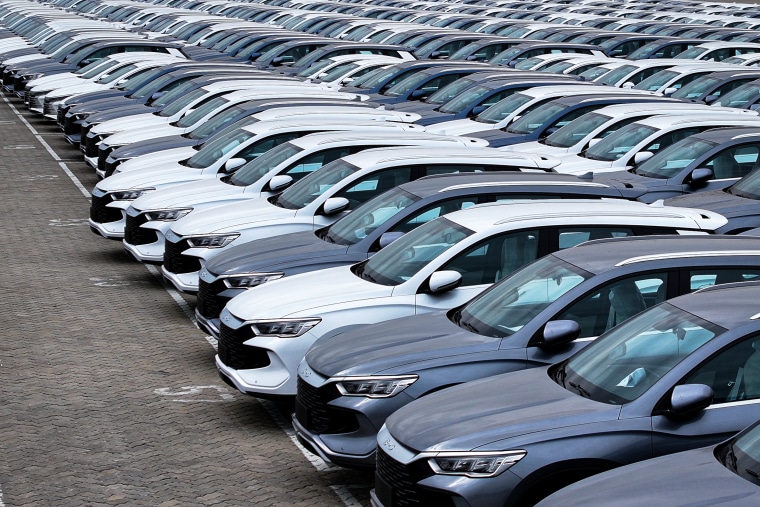WASHINGTON — The Biden administration plans to raise tariffs on electric vehicles and other clean energy goods from China next week, according to people familiar with the matter.
The tariff rate on Chinese electric vehicles is set to roughly quadruple — from 25% to about 100% — the sources said. They also said that a rate hike would apply to Chinese batteries and solar panels — two areas that the Biden administration has invested in domestically.
Administration officials are planning to make the announcement Tuesday, though the timing could change.
The White House declined to comment.
The planned tariff hike was first reported by the Wall Street Journal.
Treasury Secretary Janet Yellen is heading to the G7 Finance Ministers meeting in Italy this month as the U.S. hopes to coordinate similar actions from other countries to present a coordinated front to China, one source said.
In an interview this week with Marketplace, Yellen was asked whether the U.S. was losing out competitively to China regarding electric vehicles and batteries.
“We don’t think the playing field is level,” Yellen responded. “And we think China is massively subsidizing investment in this set of industries that they have targeted as critical to their growth prospects.”
For almost two years, the U.S. has faced backlash from allies about undercutting their green energy economies because of the incentives included in the Inflation Reduction Act that President Joe Biden signed into law. Many of those allies have since created their own versions of the IRA to compete — and now they’re trying to present united front on a mutual competitor: China.
Last month, Biden called for tripling tariffs on Chinese steel and aluminum when he spoke to union members in battleground Pennsylvania. During his remarks in Pittsburgh, the president said China was overproducing goods to export to the U.S., driving down prices and hurting the American economy because higher-quality U.S. products must compete with artificially low-priced alternatives.
“For too long, the Chinese government has poured state money into Chinese steel companies, pushing them to make so much steel, as much as possible, subsidized by the Chinese government,” Biden said at the time. “They’re not competing. They’re cheating. They’re cheating. And we’ve seen the damage here in America.”
Former President Donald Trump has said he would consider a 60% tariff on all Chinese imports if he's elected in November. During his administration, the U.S. imposed new tariffs on imports of washing machines, solar panels, steel, aluminum and billions of dollars’ worth of goods from China. Biden has kept most of Trump’s China tariffs intact.


